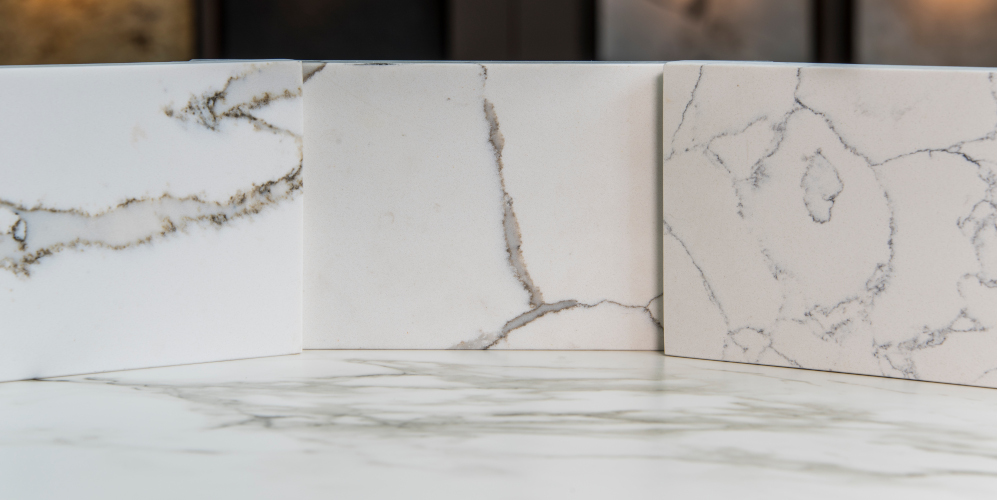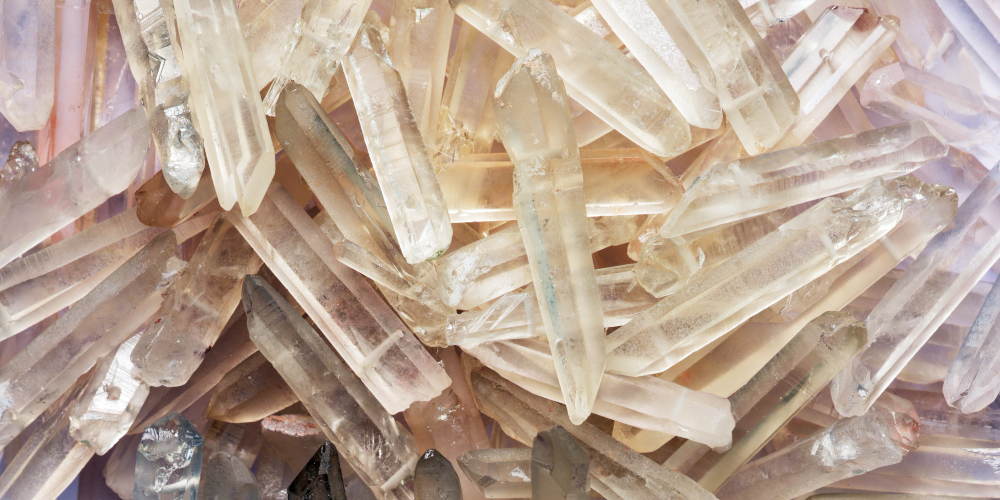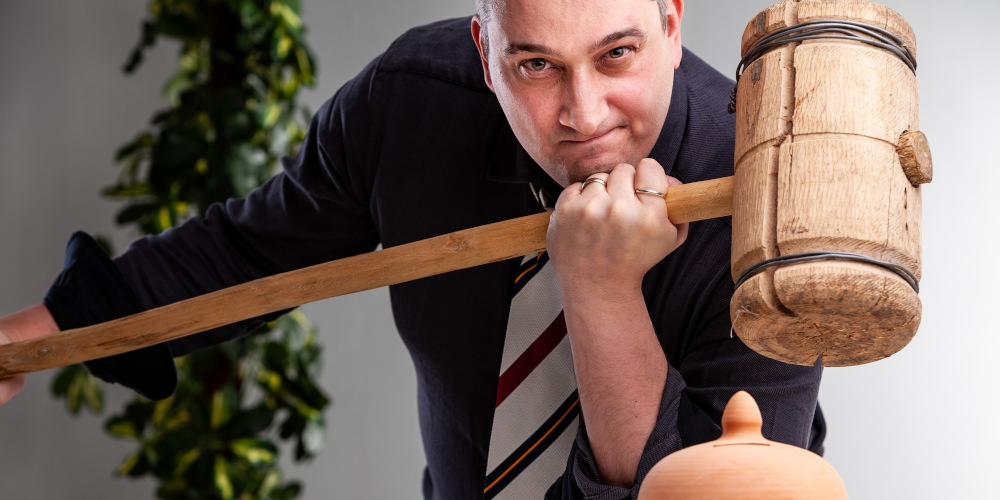Have you walked into a showroom or store, only to be greeted by enthusiastic salespeople? They are always keen to sell you their wares because it’s their job. However, when they start exaggerating or overselling, it’s time to take a step back. Evaluate their pitch and claims. Are they sharing facts or over-stretching the truth? Are you aware of common countertop myths?

Here, we aim to dispel the common countertop myths that surround our favourite material, quartz.
Myth 1: Thicker is better

This is a common pitch that many salespeople dish out to unsuspecting buyers: The thicker the quartz is, the better it is for your countertop. This misconception correlates the thickness to hardness and durability.
However, this isn’t true. A thicker slab of quartz may not be able to absorb impact better.
When judging the strength of a quartz countertop, its compactness is more important than its thickness. A better indicator of durability is a scratch hardness test.
With the rising popularity of minimalist trends, the thinner quartz is favoured among designers for its sleekness and durability. A thinner slab of quartz is more complex to manufacture. It undergoes a more stringent process to ensure uncompromised quality.
Myth 2: Quartz cannot be moulded
In the past, this was indeed a challenge because the slabs were thick. However, with a reduced thickness of 2-5mm, quartz slabs can now be moulded into a curve.
The thermoforming method is used to mould quartz into shape. Here, quartz slabs undergo a hot water treatment to break the resin bond before the bending process.
Now you can achieve a more seamless design with this technique.
Myth 3: Quartz is 100% mined stone

Quartz is a natural mineral that can be mined. However, no quartz countertop is made of 100% mined stone. A quartz slab contains 90% natural crushed quartz, and 10% polymers, resins and pigments. These elements are compacted through high heat and pressure creating a very solid and durable material.
Myth 4: Quartz needs to be sealed
Although quartz slabs contain natural quartz, the combination of other materials during the manufacturing process creates a non-porous product. This very quality eliminates the need for any sealing, unlike natural stones.
Without pores, moisture, oil and food particles are not able to seep into your countertop. That is why you won’t have to worry about staining and bacteria growth. It’s no surprise at all that quartz is rated as one of the most hygienic materials for kitchen countertops. This makes your countertop perfect for food preparation.
Myth 5: Quartz and Quartzite are the same material
People tend to confuse between quartz and quartzite, and may even use it interchangeably. We can hardly blame them. These two materials might sound similar. Both even contain quartz minerals. Nonetheless, quartz and quartzite consist of different material compositions.
Quartz is an manufactured stone. On the contrary, quartzite is a natural stone. In terms of hardness and durability, quartz trumps quartzite in terms of density.
Another striking difference between these two materials is maintenance. Quartz enjoys the benefits of being a premium low maintenance material. Whereas quartzite is susceptible to staining, thus requires regular sealing.
Myth 6: Quartz is indestructible

In terms of hardness, quartz is comparable to granite. Both are only almost indestructible. However, if you use constant unnatural force onto your countertop, you can be sure it will eventually crack.
Repetitively hitting your countertop with a block of ice, or in weirder cases, a sledgehammer can damage even the hardest material over time. Even though it is known for its toughness, refrain from using unnecessary extremities just to prove a point.
Myth 7: Quartz only comes in a polished finish
Polished countertops are common because of their evergreen appeal. However, times have changed. Today, modern homeowners are gravitating towards the bold, matte look.
Quartz countertops offer a wide range of designs, colours, and finishes to suit your style and taste. Who’s to say that you can’t have a matte finish for your quartz countertop?
Quartz Countertop Myths Busted!
Before you make your kitchen countertop purchase, we encourage you to read up and understand your options. The salesperson is there to guide you in making choices. Still, they may not always have your best interest at heart.
With proper knowledge, you will be able to discern facts from myths and make an informed decision.


